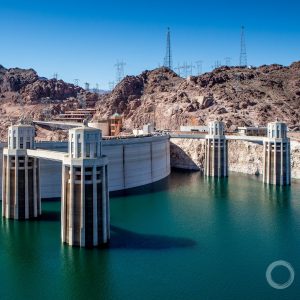The Stream, June 8, 2021: Brazilians Will Have Power Despite Historic Drought, Grid Operator Says
YOUR GLOBAL RUNDOWN
- Brazil’s national grid operator guarantees power supplies for the remainder of the year amid a historic drought.
- Around one-third of more than 400 sites tested across Pennsylvania contain PFAS chemicals, a state report found.
- Black carbon deposits are speeding up glacial melting in the Himalaya, a new report says.
- As Chile begins to rewrite its constitution, environmental activists center water rights and other environmental protections.
Savannah, Georgia, plans to resume collecting unpaid water bills.
“We are always willing to work out payment arrangements with those who need it, but for our city to operate we must start collecting what’s due.” – Savannah Mayor Van Johnson. The Associated Press reports that the Georgia city will start collecting unpaid utility bills soon. City officials said residents owe over $25 million in unpaid water bills, some of which date back to 2019.
- Why it matters: The pandemic has exacerbated water debt across the country. In August of last year, a Circle of Blue investigation found that more than 1.5 million residential customers in a dozen major cities were in debt to their water departments. In an attempt to relieve some of the debt accrued during the pandemic, Congress set aside more than $1.1 billion for low-and middle-income Americans, but none of that aid has yet reached households in need. In North Carolina, researchers found that resuming bill collection was a “motivating factor” in prodding people to pay off their past-due balances.
IN RECENT WATER NEWS
In Case You Missed It:
HotSpots H2O: The Toto, One of the World’s Smallest Ethnic Groups, Face Water Shortages Along the India-Bhutan Border – Quarries in Bhutan’s Tading hills have caused water shortages for the village of Totopara in the Himalayan foothills of West Bengal.
What’s Up With Water – June 7, 2021 – This week’s episode covers a study that found lakes around the world are being starved of oxygen, Chinese officials who warn of major flooding this summer, and documents that show the risks aging dams across the United States pose to toxic waste sites.
Brazil National Grid Operator Guarantees Power Amid Historic Drought
Despite hydropower shortages amid the country’s worst drought since 1930, Reuters reports that Brazil’s national grid operator has guaranteed power supplies for the remainder of the year. The operator, ONS, has taken measures such as easing restrictions for dams in the São Francisco and Paraná river basins, and importing energy from Argentina and Uruguay.
TODAY’S TOP WATER STORIES, TOLD IN NUMBERS
400 SITES
A new report from the Pennsylvania Department of Environmental Protection found that around one-third of more than 400 sites tested across the state were found to contain PFAS chemicals. The Associated Press reports that Pennsylvania Gov. Tom Wolf’s administration said the results of the sampling program do not indicate widespread PFAS contamination. Sites contaminated with the so-called “forever” chemicals were located in more than two dozen counties.
750 MILLION
A new report from the World Bank found that black carbon deposits are exacerbating the melting of Himalayan glaciers. The analysis found that current policies will only reduce black carbon deposits by 23 percent. New policies, like improving the efficiency of brick kilns, are within reach to contain glacier melt to current levels.
ON THE RADAR
The newly elected constitutional assembly in Chile will begin a nine-month process of drafting a new constitution. Al Jazeera reports the new document could enshrine environmental protections, including access to clean water. The country’s current constitution explicitly permits the privatization of water, which has allowed businesses to buy water resources in a country where 350,000 people currently do not have access to water.
Jane is a Communications Associate for Circle of Blue. She writes The Stream and has covered domestic and international water issues for Circle of Blue. She is a recent graduate of Grand Valley State University, where she studied Multimedia Journalism and Women, Gender and Sexuality Studies. During her time at Grand Valley, she was the host of the Community Service Learning Center podcast Be the Change. Currently based in Grand Rapids, Michigan, Jane enjoys listening to music, reading and spending time outdoors.






Leave a Reply
Want to join the discussion?Feel free to contribute!